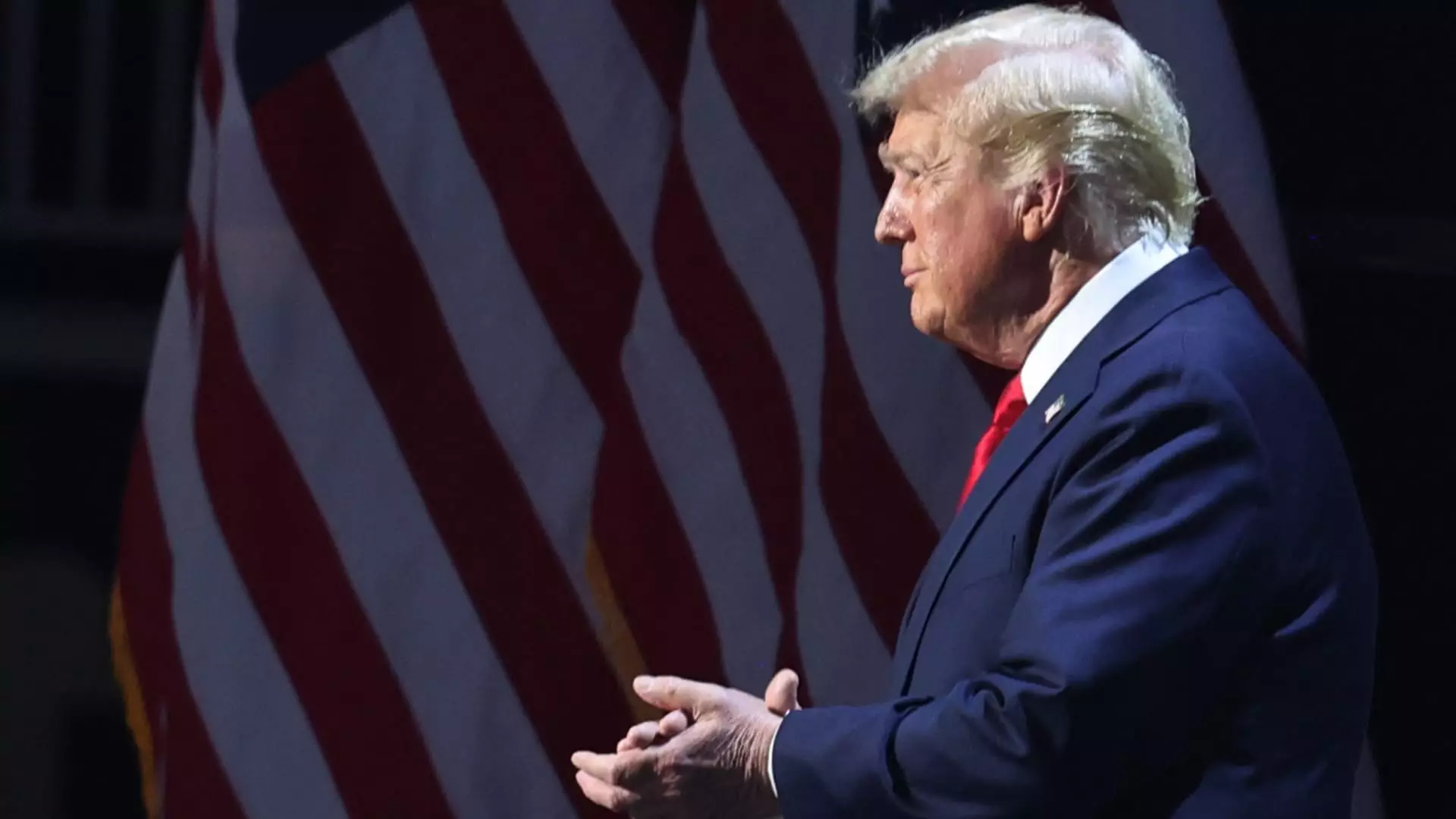As the 2024 presidential campaign heats up, Donald Trump is making strategic moves to reshape his narrative and regain lost ground among Black voters. His upcoming question-and-answer session at the National Association of Black Journalists (NABJ) Annual Convention in Chicago marks a notable effort to directly engage with a community that largely rejected his candidacy in the previous election. This event, however, raises important questions about the implications of such an appearance for both Trump and the NABJ.
By choosing to address a live audience of journalists of color, Trump aims to re-establish his connection with Black voters, an essential demographic for any presidential hopeful. In the 2020 election, he claimed just 12% of the Black vote, a stark figure that highlights the challenge he faces in courting this group. The NABJ convention offers him a platform to discuss pressing issues affecting the Black community—an opportunity to articulate policies and bridge gaps that may have alienated voters in the past. Nevertheless, engaging with such a significant media organization as the NABJ also carries its risks, particularly in the face of Trump’s controversial past statements and actions regarding race.
Among the journalists set to interview him are reputable figures, including Fox News anchor Harris Faulkner and ABC correspondent Rachel Scott. The presence of these journalists raises the stakes for Trump, as they are likely to probe into substantive issues, seeking to extract meaningful responses amid the political bravado he often exhibits. Yet, it remains to be seen whether Trump’s charisma will translate into tangible support from a demographic that demands authenticity and consistent engagement.
Trump’s outreach faces a formidable challenge in the form of Vice President Kamala Harris, who embodies a multifaceted representation of leadership as the first Black woman and first person of South Asian descent to hold her position. With recent polling suggesting that Harris has more appeal among Black, Latino, and younger voters than her predecessor, President Biden, Trump is likely contending with an uphill battle. Harris’s ability to galvanize support in key demographics places her in a position of advantage that could easily overshadow Trump’s attempts to pivot his narrative.
Recent surveys, such as the Bloomberg/Morning Consult poll focusing on battleground states, illustrate the tightening race, indicating a significant shift that could threaten Trump’s electoral strategies. For Trump, addressing the NABJ audience is not merely a public relations stunt; it is a critical component of his approach to reclaim lost ground as he prepares for a showdown against Harris.
The decision to host Trump at the NABJ convention has not been without controversy. As one of the largest associations for journalists of color, the NABJ’s invitation led to backlash from within its ranks, resulting in the resignation of co-chair Karen Attiah, who publicly disavowed the idea of platforming Trump in the manner proposed. This conflict reveals a deeper tension within media organizations regarding the ethics of allowing individuals with contentious histories to dominate discourse within marginalized communities.
NABJ President Ken Lemon defended the decision, framing it as an opportunity for journalists to hold political figures accountable. The juxtaposition of Lemon’s statement with Attiah’s resignation underscores the divide within NABJ regarding how best to navigate the difficult terrain of media representation and political engagement. Tia Mitchell of the Atlanta Journal-Constitution, another NABJ program co-chair, supported the move, aligning it with the association’s historical practice of inviting all presidential candidates to engage in dialogue—a practice that seems increasingly fraught in today’s polarized climate.
As Donald Trump prepares to address the NABJ convention, it is both an opportunity and a gamble. His efforts to reclaim Black voter support are fraught with challenges, particularly in the context of Vice President Harris’s rising popularity among critical voter demographics. The NABJ’s decision to invite Trump underscores the complexities that media organizations face when balancing the need for dialogue with the responsibilities of representation. How this event will play out remains to be seen, but it certainly sets the stage for a contentious electoral season where each candidate will have to navigate their own narratives—all under the scrutiny of an engaged and skeptical electorate.


Leave a Reply